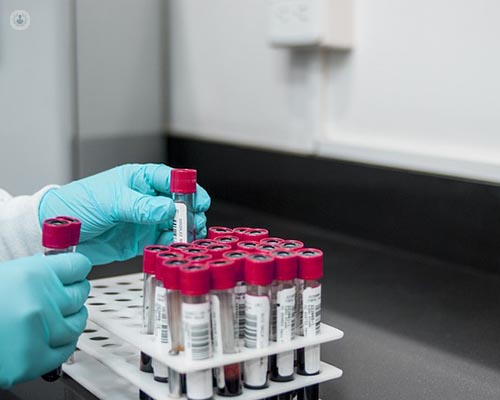Cytomegalovirus (CMV)
What is being analysed?
CMV analysis involves testing for the presence of cytomegalovirus antibodies or the virus itself in a patient's blood, urine, saliva, or other bodily fluids.

What does the result mean?
A positive result indicates the presence of CMV in the body, suggesting either an active infection or past exposure. A negative result suggests the absence of active infection or insufficient antibodies for detection.
Why do the analysis?
CMV analysis is performed to diagnose CMV infections, especially in individuals with weakened immune systems or pregnant women, where the virus can pose serious health risks.
When to do the analysis?
CMV analysis is recommended when symptoms of CMV infection are present, or when individuals are at higher risk due to immunocompromised conditions, organ transplantation, or pregnancy.
What sample is required?
Samples commonly used for CMV analysis include blood, urine, saliva, and tissue samples, depending on the specific test being conducted.
Is any type of prior preparation necessary?
Prior preparation typically involves informing the doctor about any medications or medical conditions that could affect the test results. Fasting may be required for certain blood tests.
How is it used?
CMV analysis helps healthcare providers diagnose CMV infections, monitor treatment effectiveness, and determine the need for interventions to prevent transmission, particularly in high-risk populations.
What are the normal values?
Normal values for CMV analysis vary depending on the specific test and the laboratory conducting the analysis. Doctors interpret results based on established reference ranges.
|
Test Type |
Normal values |
Interpretation |
|
CMV IgM Antibody |
Negative |
No recent CMV infection |
|
CMV IgG Antibody |
Positive |
Past exposure to CMV |
|
CMV PCR |
Negative |
No active CMV infection |
|
Viral Culture |
No growth of CMV virus |
No active CMV infection |
|
CMV Antigenemia |
Negative |
No active CMV infection |
What does it mean to have altered values?
Altered values in CMV testing may indicate different scenarios:
Positive CMV IgM antibody or detection of CMV by PCR or culture suggests an active CMV infection.
Positive CMV IgG antibody with negative IgM suggests past exposure to CMV without current infection.
Positive CMV antigenemia may indicate active CMV replication and is often seen in immunocompromised individuals.
Any unexpected results should be discussed with a doctor for further evaluation and appropriate management.